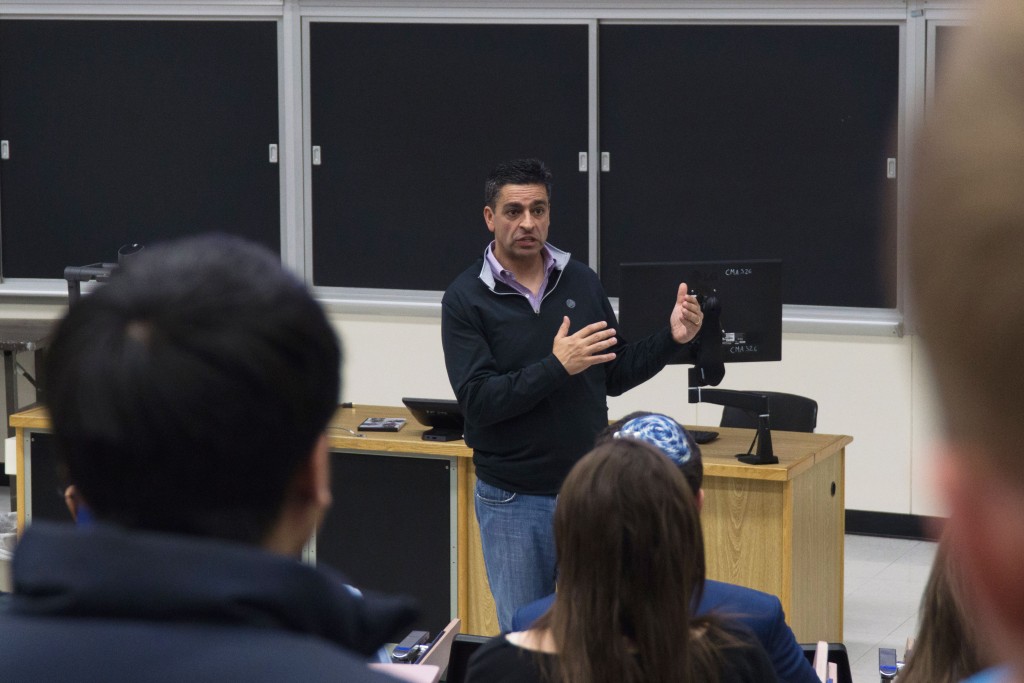
Vincent Daniel not only predicted the financial crash of 2008, but was also part of an organized plan to bet against the housing market and make a profit on the trades. His story was told in the movie “The Big Short” and on Saturday he came to his alma mater, Binghamton University, to talk about it.
After graduating from BU in 1994 with a bachelor’s in accounting, Daniel began working on Wall Street. As depicted in the movie, he played a role in exposing the public to the flawed subprime mortgages that many Wall Street banks had been repackaging and selling.
Daniel, who is now the head of research at Seawolf Capital, participated in a question and answer session hosted by the Finance Society in Lecture Hall after a screening of “The Big Short.” In the movie, actor Jeremy Strong plays Daniel, who was a partner at FrontPoint, a once multi-billion dollar hedge fund. He said that the way he was depicted in the movie was somewhat unrealistic, but that it still kept true to the overall point of the story.
“They made me very serious but that was the role they wanted me to play,” Daniel said. “They wanted me to be the badass numbers guy that is Italian-American.”
Working in the mortgage sector since the 1990s, Daniel focused specifically on subprime mortgages. Subprime mortgages are loans given out to people who, based on their credit rating and financial history, would not normally qualify for a conventional mortgage.
“I would track these securitization bonds from way back when, in 1996,” he said. “So I would see the ebbs and flows in cycles. And we started to see a really big deterioration in 2004, through 2006.”
According to Daniel, after decades of irresponsible mortgage lending, large banking institutions bundled these supposedly subprime loans into low-risk mortgage pools. He realized that many of the mortgages that were underlying these complicated securities could not possibly be paid back and therefore the assets which were considered safe by investors were actually incredibly risky. This became clear when the market crashed in 2008.
“It started getting bigger for us when we realized this machine, which we felt was really big, was bigger than we thought,” he said.
Daniel ended on a positive note by praising new regulations put into place such as the Dodd-Frank Wall Street Reform and Consumer Protection Act, which promotes financial security by increasing transparency and accountability. He noted that banks cannot get away with many of their old ways under these new regulations.
Ron Sanon, a junior majoring in economics, interned for Daniel last summer and said he was excited to have an alumnus come to BU who was involved in such a critical national event.
“I think this was a good chance for students to hear not only about the movie but more importantly, about what happened with the financial crisis, which is something that a lot of students didn’t understand,” he said. “I think this movie does a really good job about educating kids about what happened and gives them a different perspective.”


